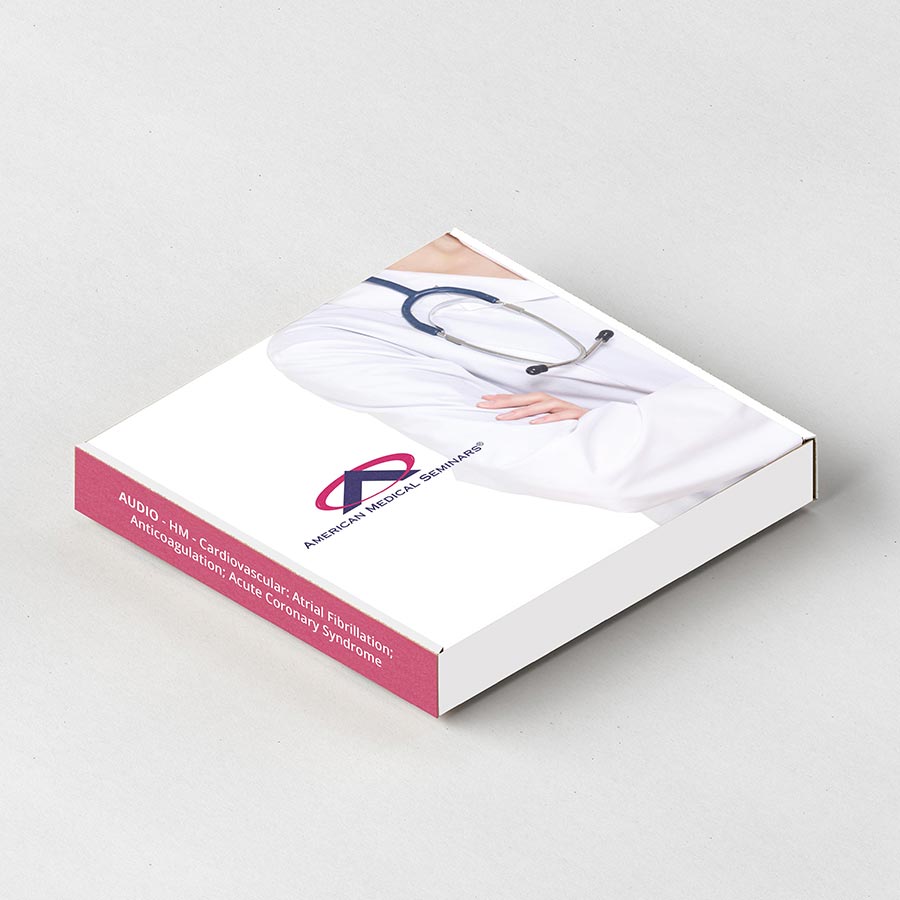Product Description
Expiration Date: July 1, 2019
Title: Hospital Medicine – Cardiovascular: Atrial Fibrillation; Anticoagulation; Acute Coronary Syndrome
Faculty: Vandana Y. Bhide, M.D., F.A.C.P., F.A.A.P., A.B.I.H.M. and Kendal Williams, M.D., M.P.H.
Original Release Date: July 1, 2016 Review Date: July 1, 2017 Expiration Date: July 1, 2019
TOPIC 1: Practical Management of Atrial Fibrillation in the Hospitalized Patient.
Upon completion of this session, the participant should be able to: COMP
- Assess and evaluate treatment options for atrial fibrillation with rapid ventricular response.
- Employ appropriate anticoagulation strategies for atrial fibrillation.
- Distinguish the advantages of rhythm versus rate control treatment strategies.
- Determine the possible underlying causes of CHF exacerbations.
TOPIC 2: Novel / Non Vitamin K Oral Anticoagulants.
Upon completion of this session, the participant should be able to: EBM, COMP
- Differentiate the advantages and disadvantages of commonly used anticoagulants.
- Employ evidence-based anticoagulation bridging regimens.
- Assess the approved indications for various anticoagulation agents.
- Apply the evidence-based indications for anticoagulation in hospitalized patients.
TOPIC 3: Update on the Management of Acute Coronary Syndromes.
Upon completion of this session, the participant should be able to: GL, COMP
- Distinguish the forms of ACS and their relative prognoses.
- Based on the most recent AHA/ACC guidelines, apply the appropriate initial management of patients experiencing acute coronary syndromes.
- Based on the most recent AHA/ACC guidelines, categorize the therapeutic options for patients with unstable angina and post-MI.
- Based on the most recent AHA/ACC guidelines, employ the secondary prevention strategies for patients who have experienced an acute coronary syndrome.
- The receipt for any incentive-associated purchase will designate the value of the gift card separately from the cost of the learning activity.
- This incentive may have implications on your tax reporting obligations. Any reimbursed amount must be declared as personal income for tax purposes.


